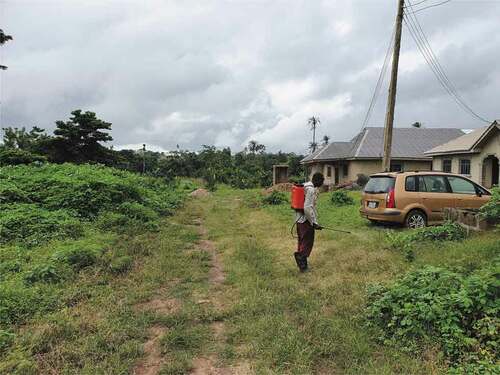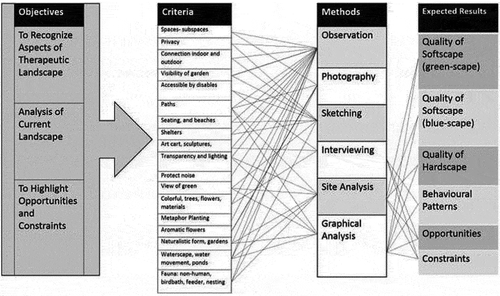SUPPORTING CITY KNOW-HOW
Human health and planetary health are influenced by city lifestyles, city leadership, and city development. For both, worrying trends are leading to increasing concern, and it is imperative that human health and environmental impacts become core foci in urban policy. Changing trajectory will require concerted action; the journal Cities & Health is dedicated to supporting the flow of knowledge, in all directions, to help make this happen. We wish to foster communication between researchers, practitioners, policy-makers, communities, and decision-makers in cities. This is the purpose of the City Know-how section of the journal. We invite you to join these conversations. In order to strengthen the community of interest, we would like to include many and varied voices, including those from younger practitioners and people who are supporting health and health equity in everyday urban lives.
This special issue of Cities & Health titled ‘Urban Health in Africa: Research to policy to action’ comprises some twenty articles shedding light on urban health in Africa, within the remit of the journal and its focus on physical design, planning and governance of human settlements. We are proud to be able to share with you 12 research articles, all of which have short summaries for is aimed at policy makers, practitioners and communities in this section. In addition, there is a case study, three commentary pieces and four reflective pieces raising important items to consider and lessons from those involved.
The special issue was initiated at the International Conference on Urban Health in Kampala in 2018, with its delivery being delayed by the COVID-19 pandemic. It highlights the work of African and Africa-focused researchers and practitioners linking science, policy and practice in the understanding of factors impacting the health of urban populations in African cities and communities.
A participatory approach to building a coalition of health and planning sector urban actors in Africa: a Douala case-study
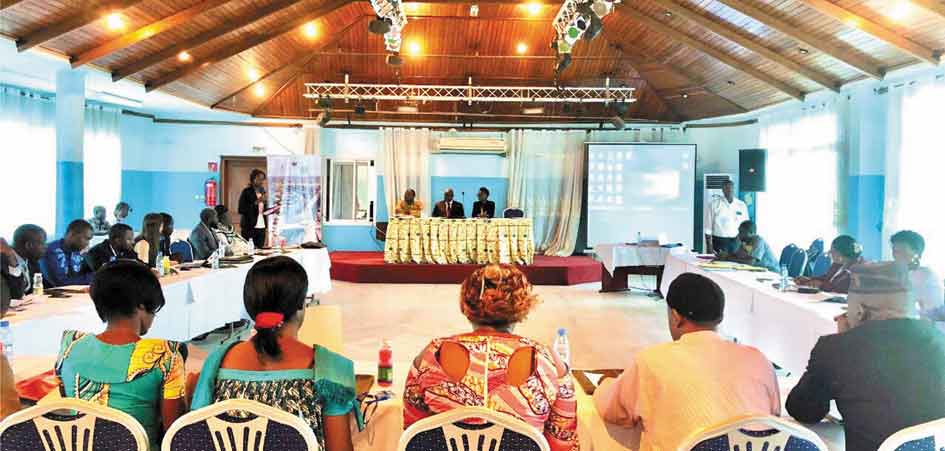
Participatory approach to research-policy-civil society intersectoral partnerships that identify key urban challenges and solutions in Douala, Cameroon.
For the attention of: Urban planners and human settlement policymakers; health policymakers; urban practitioners.
The problem: Sub-Saharan African cities are experiencing rapid growth with proliferation of informal settlements characterised by poverty, overcrowding, and poor living conditions. Consequentially, informal settlements have a high disease burden, yet health considerations are seldom included in planning policies, often due to the siloed, vertical nature of governments.
Collaboration between health and planning sectors is needed, however practical models and approaches to initiate, facilitate and sustain collaboration are not well documented
What we did: To address this knowledge gap, we utilised a participatory approach, engaging a variety of government, academic and civil-society stakeholders from different disciplines in the co-design and conduct of a workshop to explore stakeholder perspectives on urban health priorities in Douala municipalities and experiences of working across disciplines and government sectors. We evaluated the process of co-designing the interdisciplinary workshop and identified the importance of interdisciplinary knowledge sharing between academic and non-academic stakeholders.
What our study adds: This study has five distinct outcomes for this issue:
A methodological approach for conducting transdisciplinary research
A participatory approach for initiating cross-sector engagements both within and between academia, government, practitioners, and civil society
A critical reflection on barriers to collaboration between sectors or fields, and examples of strategies to overcome these barriers
Contributes to the evidence base required to inform contextually relevant models that aim to improve integrated urban governance
Contributes knowledge on urban health challenges within the African context of Douala in Cameroon
Implications for city policy and practice: Our study provides a practical model that can assist policy makers and implementers in initiating, facilitating and sustaining stakeholder engagements and partnerships between government sectors, civil society and academia for addressing identified societal challenges. More specifically, it explores stakeholders’ experiences and perspectives on working across sectors for a common purpose and provides possible strategies for overcoming barriers to working with other sectors.
Links to other resources:
ISC: Increasing the production of high-quality, integrated (inter – and transdisciplinary), solutions-oriented research on global sustainability by early career scientists in Africa. Leading Integrated Research for Agenda 2030 in Africa research programme
PEAK Urban: Seeking to produce and explore groundbreaking research on the greatest issues facing the contemporary city. PEAK Urban
Full research article: Developing a participatory approach to building a coalition of transdisciplinary actors for healthy urban planning in African cities – a case study of Douala, Cameroon
Authors: Amy Weimann (@amy_weimann), Blaise Nguendo-Yongsi, Christopher Foka, Uilrich Waffo, Pamela Carbajal (@pamela_carbajal), Remy Sietchiping, Tolu Oni (@drtolullah). City Know-how editor: Marcus Grant (@MarcusxGrant)
Who are the poor people, and how do they survive in Kigali’s informal urban settlements in Rwanda?
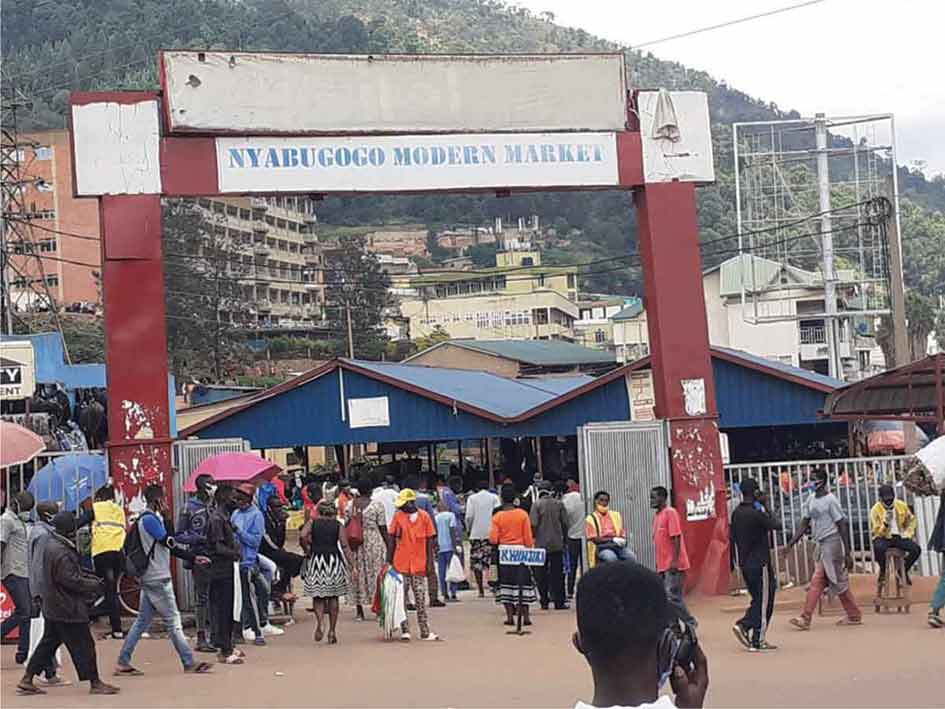
Urban poverty, as in Kigali, is not necessarily explained through poor access to clean water, unclean neighbourhoods, lack of safety, or land titles. The services are the result of inclusive policies.
For the attention of: City authorities, donors and researchers in low- and middle- income countries.
The problem: This study discussed the profile of poverty and efforts to access basic household needs in Kigali, Rwanda, a case study of an emerging city in developing countries.
The benefits of the city are not shared equitably partly because of the absence of sufficient evidence on the status of poverty and the survival strategies for the poor.
Taking advantage of the opportunities of the city remains a challenge for the urban poor in most developing countries.
What we did and why: We collected data from 1,152 households living in informal settlements in Kigali city, selected randomly from 15,628 households that lived in similar settings. We asked the household-heads the information on their demographic characteristics, their survival strategies, and the main needs on which they spent money. The purpose was to describe the household poverty profile and determine who within the informal settlements is specifically vulnerable, the factors driving to poverty, and the household strategies for survival.
What our study adds: This study raises the need to revisit long-established preconceptions of urban poverty in developing countries.
Poverty is not necessarily explained through inadequate access to clean water, dirty neighbourhoods, lack of security, or absence of land ownership.
These services are results of inclusive policies as in Kigali, Rwanda. However, difficulties in accessing payable services are an essential characteristic of the urban poor. The most vulnerable are the newly-settled households, never-married, divorced, widows, elderly headed-households, and street hawkers.
Implications for city policy and practice: The study indicated that most of the poor households survive in doing petit businesses, in partnering among themselves and with the local leaders. Similar initiatives can be utilized in designing pro-poor policies and programs involving development actors and government officials to potentially support the urban poor thrive from poverty. It starts with changing the antagonist view, which is mostly attributable to urban informality and sees it as a phenomenon to manage, and people to support.
Links to other resources and support:
IDRC – International Development Research Centre
U.S. Agency For International Development – USAID
Full research article: Poverty profile and efforts to access basic household needs in an emerging city: a mixed-method study in Kigali’s informal urban settlements, Rwanda
Authors: Dieudonne Uwizeye (@Duwiz), Albert Irambeshya, Simeon Wiehler & François Niragire. City Know-how editor: Marcus Grant (@MarcusxGrant)
Complexity in the therapeutic pathways available to city dwellers with mental health problems in Yaoundé, Cameroon
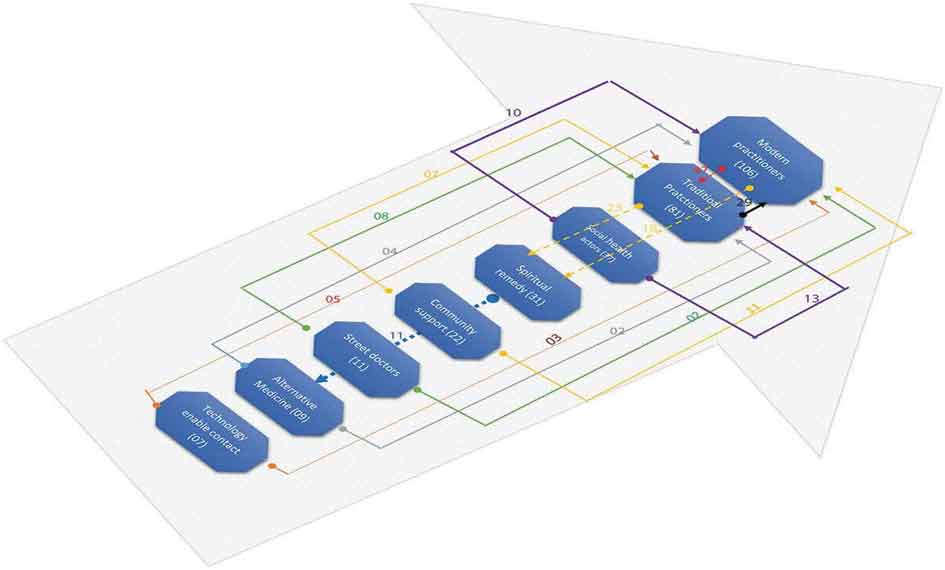
Due to lack of quick access to adequate treatment by patients with mental health disorders in Yaoundé, we ask: when and where they actually seek help?
For the attention of: Health professionals and local communities in low – and middle-income countries.
The problem: Mental health problems are an important source of burden worldwide. A key recommendation of the World Health Organization is that treatment should be based in primary care, whereby the provision of basic preventive and curative mental health care is provided at the first point of entry into the health care system.
In Cameroon, patients with mental health disorders resort to a wide range of treatment regimes, ranging from no treatment to professional care, traditional healers, faith healers and alternative medicine.
Yaoundé is the capital of Cameroon. Despite the high prevalence of mental health problems and disorders, patients in Yaoundé do not have quick access to adequate treatment. They resort to various health services ranging from modern to traditional healthcare.
What we did and why: We conducted a cross-sectional population survey to assess therapeutic pathways of city dwellers who suffer from mental disorders. We wanted to know how and why different forms of treatment were used.
What our study adds: We heard from patients using a range of treatment facilities, their pathways for mental health care varied substantially. Some patients experienced direct routes from the community to specialized care, others living in areas with few services experienced a wide variety of pathways that often included traditional or faith healers. The most important reasons for resorting to a particular facility were:
availability,
ease of accessibility,
belief in supernatural causation of illness.
People’s pathways into mental health care are often complex and can involve various formal and informal agents.
Implications for city policy and practice: Traditional and modern medicines will always be part of Cameroonian healthcare delivery, therefore efforts should be made to integrate traditional practitioners into the national healthcare delivery system.
We conclude that policy makers and public health, in developing a better level of support, must recognise:
the importance of improving awareness campaigns to facilitate the recognition of psychiatric disorders,
that family members have a significant role on the decision to seek help from health services.
Links to other resources:
African Population & Health Research Center
Full research article: Access to health care in African cities: therapeutic pathways of city dwellers with mental health problems in Yaoundé, Cameroon
Author: H. Blaise Nguendo Yongsi (@BlaiseYongsi). City Know-how editor: Marcus Grant (@MarcusxGrant)
Loss of green open space has implications for health and socio-economy in Akure, Nigeria
As urban populations grow, cities experience intense pressure to expand at their peripheries. For people’s health and economic vitality, land use policy must be developed to create compact, dense and mixed-use communities, and not more sprawl.
For the attention of: City planners, urban developers, policy makers and public health.
The problem: Urban sprawl needs to be resisted. Increasing pollution due to increased fumes emitted from vehicles associated with sprawl has been known to be the cause of increased respiratory problems in the case study area.
Developing low density urban form is capable of reducing the cohesiveness and sense of belonging in the community.
These have negative effect on health and socio-economic wellbeing.
What we did: Primary data were acquired with the aid of 318 questionnaires. Analysis was carried out through the use of statistical packages for analyzing the questionnaire and a geographic information system (GIS) based model for spatial analysis. These analyses were used to evaluate the rate and extent of sprawl, also examining socio-economic characteristics and health issues within the study area.
What our study adds: We found that:
The pattern of sprawl had a great toll on personal health and economic lives.
The cost of transport to and from the city centre was high, negatively affecting the income of the residents.
The more people travelled from to carry out everyday activities in the city centre, the higher the living cost.
Constant fatigue due to the regular travel distance people needed to cover traveling to and from the core areas on a daily basis.
Implications for city policy and practice: There is a need:
to revise land use strategy to create a compact, dense and vitally mixed-use communities,
to develop an efficient transport network, since the study area is a transit node between the North and South of the country.
Policies should be developed to:
increase creation of awareness of the local environment and bioregion through the enlightenment of ecological sustainability issues,
impose a tax on areas identified as potential parks or forest reserves before development is allowed.
Full research article: Encroachment on green open space, its implications on health and socio-economy in Akure, Nigeria
Author: Michael Oloyede Alabi (@mikolo06). City Know-how editor: Marcus Grant (@MarcusxGrant)
Using an understanding of therapeutic landscape in hospital design
Potentials and opportunities of therapeutic landscape in psychological treatment settings, what to do: a study from Kigali city, Rwanda.
For the attention of: Hospital planners, designers and managers and psychologists, in African and other tropical low – and middle – income countries.
The problem: Despite much research into the significant effects of green and blue landscape design on health recovery processes, the landscapes within psychological centres frequently include few elements known to contribute to therapeutic environments.
These missing components in the landscape can result in avoidable confinement of patients undergoing medical treatment to indoor spaces.
We examine the therapeutic quality of landscapes at Ndera and Icyizere psychological centres in Kigali city, Rwanda, and use site analysis to highlight the potential and opportunities of including therapeutic elements.
What we did and why: We used qualitative methods such as unobtrusive observation, photography, sketching, interviews, site analysis, and graphical techniques to capture data. Then, through analysis, we were able to evaluate missing aspects of an effective therapeutic landscape and opportunities for improvement.
What our study adds: Our findings identified that the spatial structure of both centres focused on the buildings, due to the standardization of hospital design, with little attention given to landscape in terms of its clinical impact.
Despite obvious opportunities, the targets, objectives, and strategies of green and blue landscapes were less – or not-included as therapeutic considerations in the centres’ design or management. This oversight resulted in fewer outdoor activities, and outdoor environments lacking in sensory variety.
Implications for city policy and practice: There are opportunities in tropical countries to apply therapeutic landscape knowledge for the wellbeing of users. We see an urgent need to develop policies that encourage therapeutic landscapes as part of hospital construction and management plans. In particular:
Conduct research, audits and analysis of the current condition of hospitals with regards to therapeutic use of outdoor space.
Design outdoors environments to include more variety and sensory stimulation with regard to colour, scent, and materials.
Better connect outdoor and indoor spaces.
A therapeutic landscape design approach could improve the quality of treatment and ultimately the health of patients.
Full research article: Insight into the missing aspects of therapeutic landscape in psychological centres in Kigali
Authors: Rahman Tafahomi & Reihaneh Nadi. City Know-how editor: Marcus Grant (@MarcusxGrant)
Assessing the attitudes and awareness towards faecal sludge recycling in Nairobi slums
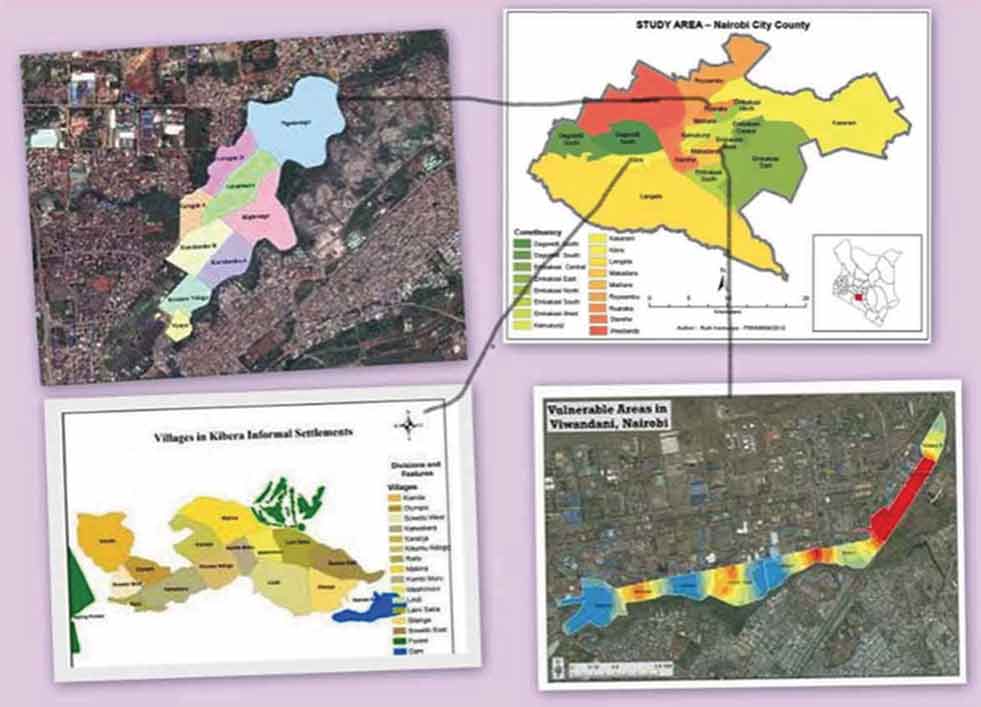
Faecal sludge recycling can provide valuable agricultural and economic benefits. This study assesses the awareness and attitudes of slum residents towards recycled faecal sludge products as well as barriers and opportunities for use.
For the attention of: Relevant local authorities, sanitation agencies and NGOs.
The problem: Communities living in informal settlements (slums) of Nairobi often lack adequate basic facilities like clean drinking water, health services, and proper housing and sanitation facilities. This results to illegal disposal of faecal sludge in open fields and water bodies like rivers leading pollution of the environment. Consequently, spread of water-borne diseases like diarrhoeal diseases.
Faecal reuse is significantly affected by people’s attitudes, culture, environment, socio-demographic factors and beliefs. Therefore, understanding which issues shape communities’ attitudes and acceptance of new approaches, such as human sludge reuse, is a big step in tackling sanitation challenges especially among the urban poor.
Faecal sludge recycling can provide ways of managing faecal sludge leading to the production of environmentally friendly products, which promote environmental quality, meet human livelihood needs and generate economic benefits. Farmers some low – and middle-income countries are now increasingly using faecal waste instead of chemical fertilizers due to its high nutrient content. However, success necessitates an assessment of communities’ awareness and attitudes towards faecal sludge products, as the practicality of faecal sludge reuse also depends on social acceptability factors.
What we did and why: We assessed the awareness and attitudes towards faecal sludge recycling among community members living in three major slums of Nairobi (Korogocho, Viwandani and Kibera). The assessment was to help identify the gaps in faecal sludge recycling to review ways of dealing with the faecal waste in urban areas and appraise how the community could be sensitised in order to increase the awareness and acceptance of the faecal sludge recycling. We also explored opportunities and challenges within faecal waste management to develop recommendations on how recycling can be improved to benefit the communities.
What our study adds: The study shows the existing opportunities in faecal sludge management activities. It also provides key community engagement pathways for creating awareness on existing faecal sludge by-products. It fills data gaps on knowledge and perceptions on faecal sludge recycling and resulting products.
Implications for city policy and practice:
Sensitization of the communities on faecal sludge recycling.
Capacity building the communities to better manage the bio-enters
County government to support community groups working in faecal sludge activities
There is a need for integrating the bio centre approach to water and sanitation provision as well as environmental well-being to the comprehensive city-wide plans made by the Nairobi County
Links to other resources:
Umande Trust: Helping people by providing fundamental human rights
Down To Earth Daily: Article ‘Slums in Kenya turning human excreta into energy, fertiliser’
Kenya: Sanitation Policy and Planning Framework Case Study for Discussion
Full research article: Awareness and attitudes towards the use of recycled faecal sludge products in Nairobi’s slums
Authors: Hellen Gitau, Ivy Chumo, Kanyiva Muindi, Sheillah Simiyu & Blessing Mberu. City Know-how editor: Marcus Grant (@MarcusxGrant)
Addressing crime and conflict within the waste management sector to safeguard city health
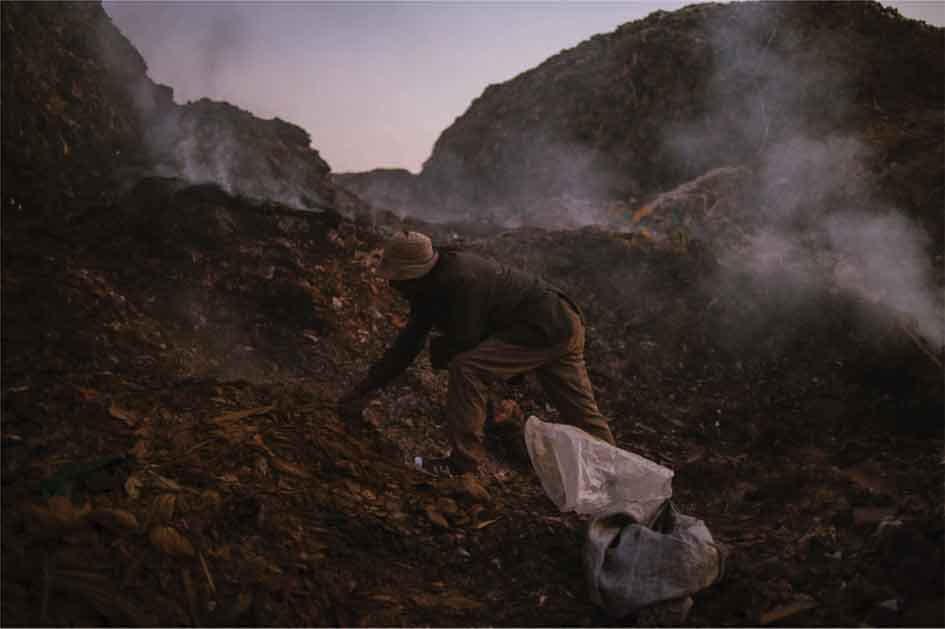
Crime and conflict in waste management portends great public health risk for the city due to effects on proper waste collection and disposal calling on city authorities to take control of the sector.
For the attention of: Local and county government administrations, Ministries of Environment and Health.
The problem: Crime and conflict in the waste management sector remain drivers of poor solid waste management. In Nairobi criminal gangs have taken control of the city’s dumpsite. The violence and extortion associated with their presence on a facility with serious public health implications have led to waste transporters finding alternative dumpsites across the city
What we did and why: This study aimed to understand the origins and nature of crime and conflict in the solid waste management sector and the impact these have on proper municipal solid waste management. Proper solid waste management remains a challenge and, however, the need to understand the role of crime and conflict is rarely examined and considered in solid waste management.
What our study adds: Our study reveals the existence of cartels at two levels within the solid waste management sector:
waste management contracts are given to unqualified providers,
criminal gangs control the dumpsite, charging levies over and above what is legally charged to waste transporters.
There is an urgent need for the county government, in the interest of public health, to act quickly to regain control of the solid waste management chain in the city.
Implications for city policy and practice: Crime and conflict in the solid waste management sector have far-reaching implications for public health due to their impact on proper waste collection, disposal and management of the dumpsite. City governments facing similar situations in low- and middle-income countries, where there has been rapid urban growth need to take full control of the entire waste management chain to ensure efficient collection and proper disposal of solid waste.
Full research article: Conflict and crime in municipal solid waste management: evidence from Mombasa and Nairobi
Authors: Kanyiva Muindi (@muindi_k), Blessing Mberu, Isabella Aboderin & Dickson Amugsi (@damugsi2002). Editor: Marcus Grant (@MarcusxGrant)
The linkages between exposure to solid waste dumpsites and health outcomes in African cities
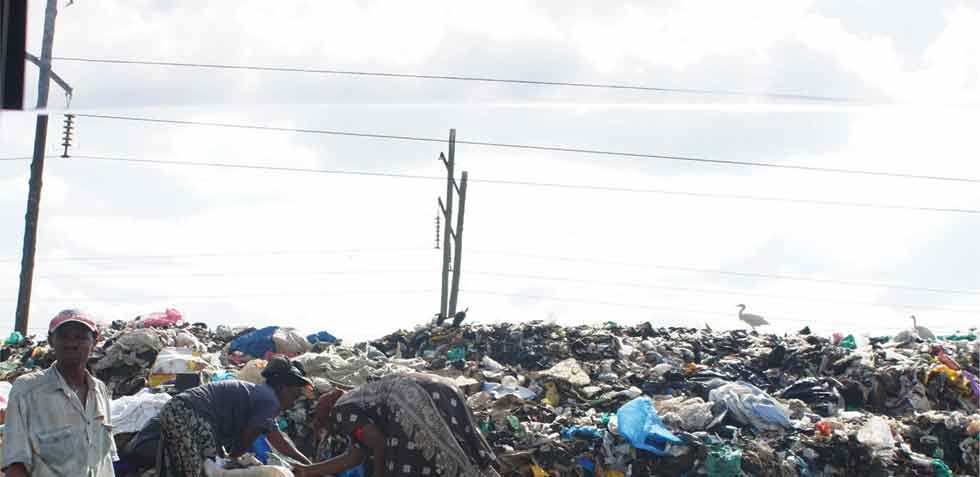
Primary household exposure to dumpsites consistently predicts incidences of self-reported morbidities relating to diarrhea/cholera and respiratory tract infections in Dakar Senegal and Nairobi Kenya.
For the attention of: Relevant city and county government or administrative divisions and environmental management, water and sanitation authorities and governmental departments.
The problem: The primary goal of solid waste management is to protect the health of the population, particularly that of low-income groups, but dumpsites, often located in poor areas, continue to constitute a health debilitating man-made hazard across urban Africa. This is exacerbated by a lack of local data for implementing agencies and local governments across African cities to pinpoint priorities, measure progress, and identify interventions that work or otherwise among different segments of the urban poor.
What we did: Using data from 2,397 and 1,178 households in Nairobi and Dakar and appropriate statistical models, we examined the linkages between levels of exposure to dumpsites and self-reported morbidities. We collected data on:
diarrhea/cholera and respiratory tract infections, among communities located astride dumpsites
those exposed to secondary risks of flooding and air pollution linked to poor solid waste management
and for non-slum non-exposed settlements.
The study updates the huge gaps in knowledge and practice, particularly in Francophone African cities.
What our study adds: Our study highlights the role that different levels of geographical exposure to solid waste play in the risk of infections within and across the two cities, as well as the perceptions of these risks. The nature of economic activity engagement predisposes households differently to health risks and the site-specific differences and understanding of these risks highlights the need of being cognizant of the social contexts of such exposures.
Implications for city policy and practice: The study reiterates the need to address the physical proximity of Nairobi municipal dumpsite to large settlements of Korogocho and Dandora. It calls for context-specific policy and program interventions to address household exposure, particularly the different socioeconomic factors in the two cities. Similarly, there is a need for awareness creation investments on health risks, especially among the primarily exposed residents across the two cities, especially in Dakar, where risk perception is generally very low.
Links to relevant resources at Urban Africa Risk Knowledge (Urban ARK):
Solid Waste Management and Risks to Health in Urban Africa: A Study of Dakar City, Senegal
Improving solid waste management practices and addressing associated health risks in Dakar, Senegal
From plan to action: assessing integration and evolution of solid waste management policies in Kenya
Full research article: Levels of household exposure to solid waste dumpsites and associated loss to health in urban Kenya and Senegal
Authors: Blessing Mberu, Michael Mutua, Caroline Kabaria, Dickson Amugsi & Kanyiva Muindi City Know-how editor: Marcus Grant (@MarcusxGrant)
Child health in Lagos, Nigeria: spatial patterning of diarrhoea
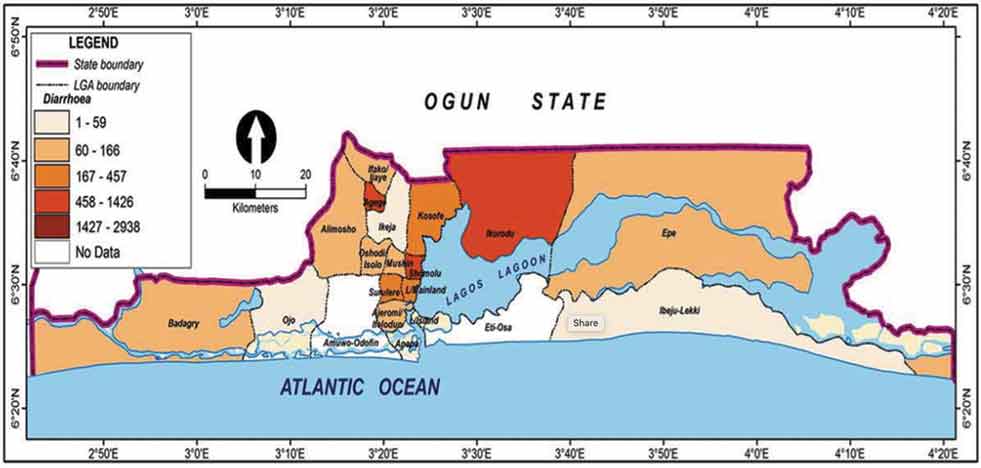
Diarrhoeal cases are concentrated in Lagos Island, Agege and Somolu areas. Risk factors include religion, paternal education, mother’s occupation, source of drinking water, floor material, child feeding from bottle or nipple.
For the attention of: Ministries of health and local and national levels and agencies controlling water resources in at-risk low- and middle-income countries.
The problem: Cases of childhood diarrhoeal diseases are a problem in Lagos, and there is some clustering of cases.
Diarrhoeal diseases were responsible for 9% of under-five mortality in Lagos State in 2011. Diarrhoeal disease prevalence among under-five children increased from 6.1% in 2008 to 7.5% in 2013.
More needs to be understood about the spatial pattern of diarrhoeal disease morbidity and identification of socio-demographic, environmental, hygiene and behavioural factors associated with occurrence.
What we did and why: This study examined the spatial pattern of diarrhoeal disease morbidity and identified the socio-demographic, environmental, hygiene and behavioural factors associated with diarrhoeal disease morbidity in Lagos State.
Using spatial statistics, data on reported cases of diarrhoeal diseases among under-5 aged children in 2017 were analysed to determine the spatial pattern of morbidity. Data from the 2013 Nigeria Demographic Health Survey was used to determine the risk factors.
Reported cases of childhood diarrhoeal diseases are spatially random with high concentration in Lagos Island, Agege and Somolu areas.
What our study adds: Determinants of diarrhoeal diseases morbidity were child’s age, mother’s age, religion, paternal education and occupation, mother’s occupation, source of drinking water, floor material, child feeding from bottle and nipple and mothers’ not wanting the last child.
Implications for city policy and practice: Governments need to strengthen the provision of safe and adequate water supply and waste disposal mechanisms at city and state level.
Educational programmes that will emphasize treatment of drinking water, safe hygiene and sanitation practices should be implemented in households.
Interventions that will promote mothers’ knowledge of causes, prevention and treatment of diarrhoeal diseases are necessary.
Vaccination of children with rotavirus is required to protect against disease.
Links to other resources and support:
Multiple Indicator Cluster Survey 2016–2017, Lagos State Survey Report
Full research article: Spatial pattern and determinants of diarrhoea morbidity among under-five-aged children in Lagos State, Nigeria
Author: Yingigba C. Akinyemi (@YingigbaJ). City Know-how editor: Marcus Grant (@MarcusxGrant)
Of fatness, fitness and finesse: experiences and interpretations of non-communicable diseases in urban Uganda
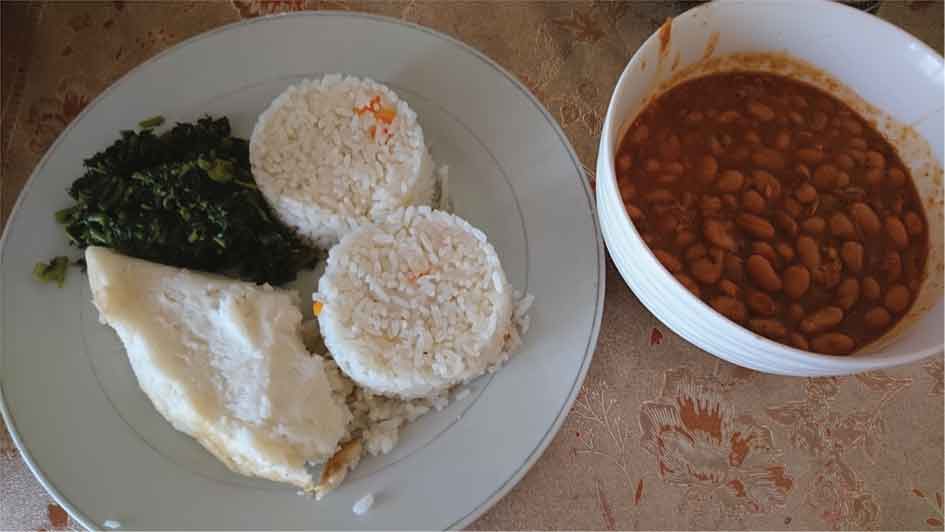
Smaller Ugandan cities already familiar with obese, diabetic, or hypertense bodies; yet diverse interpretations of contributing socio-environmental causes.
For the attention of: Urban planners and urban health managers.
The problem: The rising burden of non-communicable disease in urban Africa, with differential impacts on men and women as a critical issue. This problem has links to poverty, inequality and low dietary diversity, rather than earlier understandings of these as ‘diseases of wealth or excess’.
What we did and why: I used in-depth interviews to explore local experiences and understandings of overweight, obesity, diabetes and hypertension in two secondary Ugandan cities: Mbale and Mbarara. I conducted 22 in-depth biographic interviews with interviewees from a range of circumstances, including those described ‘the missing people’, or hard to reach. I discussed with participants how urban life was affecting their experience regarding these diseases and their responses to them.
What our study adds: The work provides insight into barriers to healthy urban living in the current socio-economic context of Ugandan, and potentially other sub-Saharan African, cities. Our in-depth analysis of local understandings of non-communicable diseases:
Does not support behavioural causal claims
Supports significance of socio-economic and cultural determinants of health
Explores claims of body-enhancement and transactional relationships as livelihood strategies, with gendered and classed dimensions
It also shows how women’s roles go unrecognised, and they can be ‘blamed’ for ill health, when the realities of insecure access to income and food, and inability to balance calorific-activity intakes in cities play a significant role
Implications for city policy and practice: We see food and diets as a useful entry-point to creating healthier, more just, cities.
Initiatives to prevent non-communicable diseases will not succeed if we do not understand the breadth of experience and explanation from people on-the-ground
Body-size beliefs and attitudes can create conflicting desires and hinder NCD prevention – work with rather than against these in health messages
Links to other resources:
Social and Economic Determinants of Health, WHO AFRO, webpage
Full research article: Of fatness, fitness and finesse: Experiences and interpretations of non-communicable diseases in urban Uganda
Author: Heather Mackay. City Know-how editor: Marcus Grant (@MarcusxGrant)
Biomedical waste management in Dakar
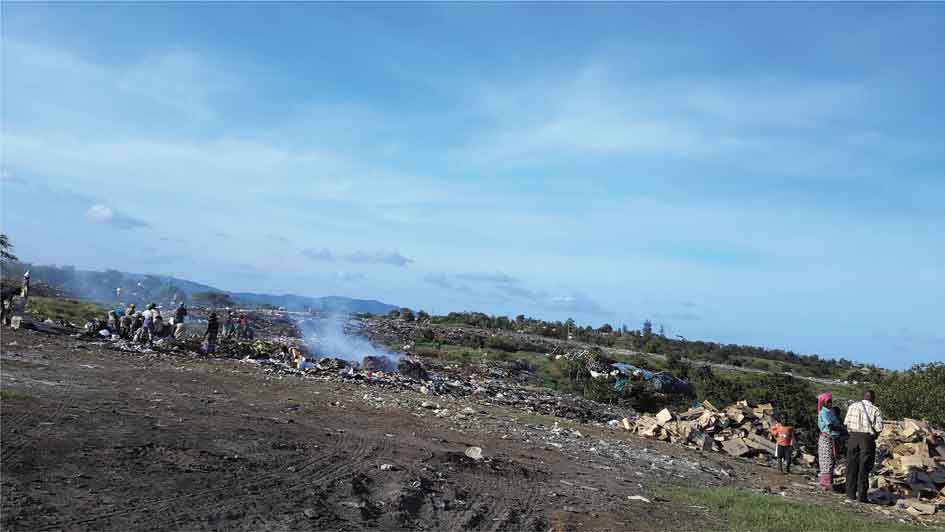
Senegal have ratified international treaties and developed legal frameworks, but Dakar continue to lack efficient chain for biomedical wastes disposal with lack of financial resources and weak law enforcement as key hindrances.
For the attention of: Administrative divisions of the Dakar region and national government of Senegal and similar authorities for other settlements with similar biomedical wastes contexts.
The problem: The rapid growth of population in Dakar, the Senegalese Capital, has led to an increase in the number of healthcare facilities in the city, with considerable increase in biomedical waste generation. This poses a huge challenge to the already burdened city’s waste management system.
What we did and why: We triangulated data from document analysis and relevant study reports to document the historic evolution of the legal frameworks that guide biomedical waste management in Senegal, the biomedical management practices in Dakar, and its health and environmental impacts. Building on the accumulated evidence, we proposed policy and program options towards improving biomedical waste management in Dakar city and Senegal in general.
What we found: Dakar’s critical challenge of biomedical waste management is linked to hosting about 80% of Senegal’s economic and industrial activities and the production of about 2000 tons of diverse solid and biomedical wastes. Despite ratified international agreements and relevant laws and regulations at national and local levels, full implementation of professional biomedical management in Dakar in proper incineration and landfills continue to lag and current practices are detrimental to population health and the environment.
Implications for city policy and practice: The paper links the minimal management of biomedical waste in particular and solid waste management in general in Dakar to lack of financial resources and weak law enforcement. Significant investment required for effective and proper biomedical waste management in the city to address environmental contamination, human exposure and associated loss to health were articulated and highlighted.
Links to other resources and support: Two papers from Urban Africa Risk Knowledge (Urban ARK)
Improving solid waste management practices and addressing associated health risks in Dakar, Senegal
Solid Waste Management and Risks to Health in Urban Africa: A Study of Dakar City, Senegal
Full research article: Biomedical waste management in Dakar, Senegal: legal framework, health and environment issues; policy and program options
Authors: Cheikh Dieng, Blessing Mberu (@BMberuAPHRC), Zacharie Dimbuene, Cheikh Faye, Dickson Amugsi, and Isabella Aboderin. City Know-how editor: Marcus Grant (@MarcusxGrant)
Are faecal waste management policies equitably designed for city dwellers in East Africa?

Faecal waste management policies do not adequately address the needs of the urban poor in East Africa
For the attention of: Ministries of Health and Water and Sanitation NGO Networks in Uganda (UWASNET), Tanzania (TAWASANET), and Kenya (KEWASNET).
The problem: Despite the known detrimental effects of faecal waste management, as acknowledged by national development agendas, faecal waste management is often not given the priority it deserves. This applies from the moment an individual passes out stool to the moment when the stool no longer poses a hazard to society.
Overlapping water and sanitation policies place faecal waste management at the periphery of sanitation strategies, undermining the need to monitor the implementation of policies independently.
What we did and why: Inorder to assess the comprehensiveness, coordination and equitability of faecal waste management policies in East Africa, we undertook a policy landscape analysis. This meant mapping and examining how the existing policies address the needs of urban city dwellers along each of the components in the faecal waste management value chain. Subsequently, gaps in policy that require strengthening were identified and recommendations were provided.
What our study adds: We mapped existing policies relevant to faecal waste management. We provide:
examination of what components of the faecal waste management value chain are addressed by the policies
identification of where there are gaps in the policies, lack of clarity and/or areas in conflict with each other
comparative analysis for Kenya, Tanzania and Uganda
Implications for city policy and practice: Well-coordinated, comprehensive policies and legal frameworks explicitly addressing all areas of the FWM value chain are required to foster implementation of sanitation services at the local level in order to achieve universal sanitation.
Central to this effort should be huge investments in data collection as a policy priority to help implementing agencies and local governments pinpoint priorities, measure progress, and identify interventions that work or otherwise among different segments of the urban poor.
For further information on similar projects: Africa Population and Health Research Centre
Full research article: Landscape analysis of faecal waste management policy gaps in Eastern Africa
Authors: Agnes Nanyonjo (@nyonjoagie), Caroline Kabaria (@kabariac) & Blessing Mberu. City Know-how editor: Marcus Grant (@MarcusxGrant)
Special issue partners
On behalf of the Editorial Board, we would like to thank all the authors and reviewers for this special issue, which has been long in development and then much delayed by the COVID-19 crisis. We also want to thank our special issues partners, the International Society for Urban Health and the African Population and Health Research Center. They have been instrumental in soliciting articles by promoting the call for papers, and we look forward to their help in disseminating the thoughts, and what we hope will be seen as innovative vision, contained in this volume.
International Society for Urban Health
The germ of the idea for this special issue formed at the Kampala 2018 conference of the International Society for Urban Health (ISUH) and the exciting sessions and presentations of the Africa Workgroup. ISUH is the only global non-governmental organization solely focused on advancing urban health and health equity by addressing the broader determinants of health. Through its annual global conference and program activities, ISUH serves as a platform for interdisciplinary academic researchers and educators, practitioners and policymakers from multiple sectors in government and the private sector – NGOs and businesses – to learn from each other and advance evidence and action that improves urban health. www.isuh.org
African Population and Health Research Center
The African Population and Health Research Center is the continent’s premier research institution and think tank, generating evidence to drive policy action to improve the health and wellbeing of African people. As a progressive African-led global research centre invested in creating legacy impact, our work is centred in three integrated programmatic divisions: research; research capacity strengthening; and policy engagement and communications. Our teams orient their research agendas to global and continental development priorities, bringing independent evidence to the forefront of decisions supporting improved growth and development in the region. The Center’s research priorities fall within six thematic units: Aging and Development; Education and Youth Empowerment; Health and Systems for Health; Maternal and Child Wellbeing; Population Dynamics and Sexual Reproductive Health and Urbanization and Wellbeing in Africa, where this special issue is embedded. Anchoring the six research areas is our Data, Measurement and Evaluation Unit providing internal support for robust data systems and outward looking technical assistance in program evaluation and data use. Through strategic partnerships, the Center strives to nurture African research leadership by building a critical mass of researchers to meaningfully engage with policy actors in developing, reviewing, and implementing policies and programs relevant to the continent’s development. The Center builds relationships with key decision-making bodies at the national, regional, and global levels to encompass engagements with government and non-government entities, as well as academic, advocacy and research institutions: all in service to our agenda of ensuring contextual, relevant, and localized knowledge as a driver of change. Our goal is to become a continental model for robust, policy-oriented, rigorous research that emphasizes synergy and collaboration. https://aphrc.org
Editorial team
Lead co-guest editors
Blessing Mberu, Head of Urbanization and Wellbeing Unit, African Population and Health Research Center
Yonette Thomas, Chief Executive Officer, Urban Health 360. Associate Editor for Women and Girls, Cities & Health
Co-editors on behalf of Cities & Health
Marcus Grant, Editor-in-Chief, Cities & Health. Expert advisor to WHO and UN-Habitat
Tolu Oni, MRC Epidemiology Unit, University of Cambridge. Research Initiative for Cities Health and Equity (RICHE), School of Public Health and Family Medicine, University of Cape Town
Acknowledgments
The special issue is the brainchild of the Africa Workgroup within the International Society for Urban Health (ISUH) and was solidified during the International Conference on Urban Health held in Kampala, Uganda, in 2018. We applaud the work of the members of the Africa Workgroup, their commitment to urban health in Africa, their support in identifying and serving as expert reviewers, and for their commitment to this special issue. In addition, we applaud the work of Professor Blessing Mberu and his colleagues at the Africa Population and Health Research Center (APHRC) in Nairobi, Kenya, for their support in identifying expert reviewers and providing support. We also thank Dr Yonette Thomas, at the time the Executive Director of the ISUH, for her motivation and championing of the special issue while at the ISUH and her continued support as Chief Executive Officer of Urban Health 360 and Dr Blaise Nguendo Yongsi for his stewardship while serving as President of the ISUH. We are grateful to all the reviewers whose work supported the authors in improving and developing their papers.

